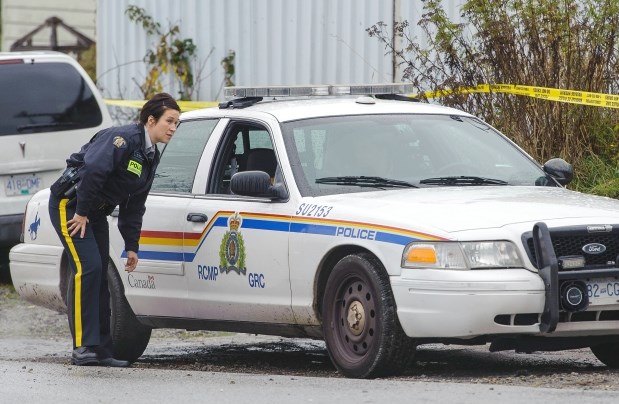A new Surrey task force will analyze the alarming number of murders in 2013, and won’t repeat the work of a similar task force struck a decade ago in the city, Mayor Dianne Watts says.
Watts and Surrey RCMP Supt. Bill Fordy announced the creation of the new task force Monday after the city set a new record for the number of homicides — 22 — within its boundaries.
“We just want to make sure we are doing the very best we can do,” Watts said in an interview Tuesday. “If there is something we can do better, then we need to implement that, especially when we talk about diverting youth away from the lifestyle of drugs and gang activity.”
From 2002 to 2004, Watts, then a councillor, oversaw Surrey’s Drug and Crime Task Force, which focused on “addressing the issues of substance misuse and the related criminal activity,” with a particular emphasis on youth.
The new task force will focus on “drug and gang activity and the contributing factors of homicide,” and will also target youth involvement. The former task force, Watts said, was a comprehensive crime reduction strategy while the latter is focused solely on the events of this year.
The earlier task force, which completed its report in December 2003, made 109 recommendations related to prevention/education, treatment, enforcement and multiculturalism. Watts said 92 per cent of those recommendations have been implemented by the city.
Both Watts and Fordy will sit on the new task force, along with an RCMP crime analyst, a Surrey school district youth worker, a city bylaw officer, and criminologist Irwin Cohen.
The focus on reducing crime, Cohen said in an interview, is not to rely solely on the police to do everything, but to bring in people from health, education, and youth areas to lend expertise.
What is critical, he added, is determining the root causes of the high homicide rate, such as drugs and gangs, and whether the perpetrators are coming from Surrey or other cities.
Surrey’s murder rates have spiked every four years over the last decade: there were 21 in 2005, 20 in 2009, and 22 so far this year. Surrey has a population of about 500,000; Vancouver, with a population of more than 600,000, has only registered five murders in 2013.
Cohen, RCMP senior research chair in crime reduction at the University of the Fraser Valley, said the spike in murders every four years could just be a statistical anomaly, but the task force will examine possible explanations.
One theory, he said, is that when police take top organized crime bosses off the street, there is a cycle of time when less experienced criminals get involved in turf wars before new leaders emerge.
In a statement Monday, Fordy said he was confident the work of the task force will eventually help police put more people in jail.
He has said the majority of murders in Surrey this year are linked to gangs and traffickers vying for control of the local drug trade.
On the agenda for the new task force will be looking at different ways police could spend their money and deploy their officers, and could even include Surrey hiring more Mounties, Watts said.
“The number of officers, we need to have a look at that as well,” she said, acknowledging that would affect the city’s budget.
The task force will include someone from the city’s bylaw department to help identify drug houses. It will also analyze new technology to determine if the city’s traffic cameras can help gather crime-related information.
The task force will, as well, examine the role of mental illness on the homicide rate, but Watts was non-committal when asked about the health board also sitting on the task force. The mayor said there are not enough resources in Surrey to help people with mental illness



